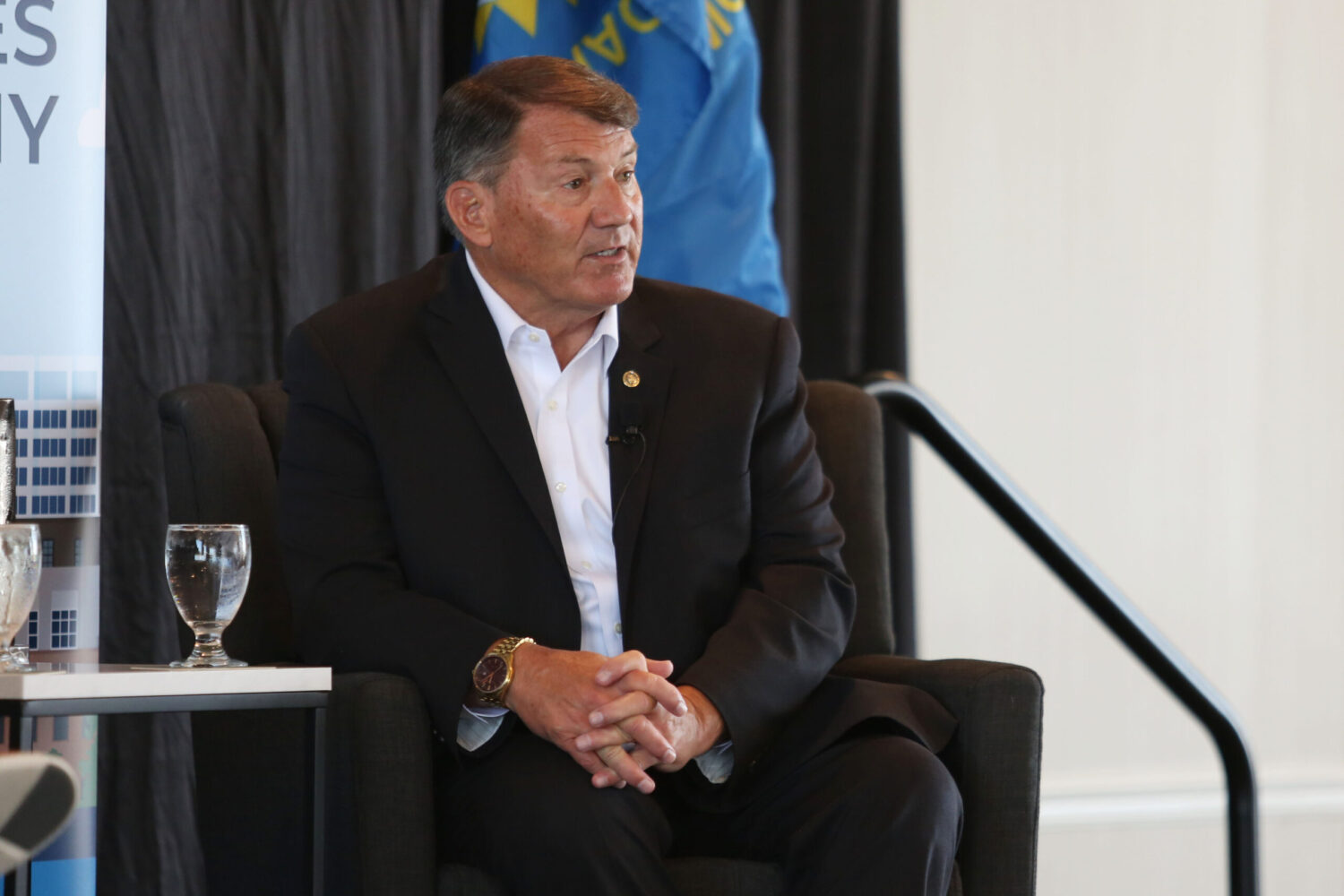
- Details
- By Makenzie Huber
SIOUX FALLS — Native American radio stations will receive stopgap funding promised to them in a handshake deal with the Trump administration, U.S. Sen. Mike Rounds said Thursday in response to concerns expressed earlier this week by tribal leaders.
Editor's Note: This article was originally published by South Dakota Searchlight. Used with permission. All rights reserved.
The South Dakota Republican answered questions about the issue Thursday during and after a public appearance with the Greater Sioux Falls Chamber of Commerce.
Tribal radio stations across the country said they haven’t heard from the Trump administration about the amounts or timing of grants needed to operate their stations over the next year, causing worry among managers and forcing them to seek other funding options.
Rounds voted for the cancellation of $1.1 billion in previously approved funds for public broadcasting in July, but only after he secured a handshake deal with the Trump administration to provide $9.4 million for tribal broadcasting. The informal deal wasn’t written into the bill that Congress passed and President Trump signed.
“My goal was to try to find a resource so that these folks, who definitely would shut down if we didn’t do it, at least have a fighting chance,” Rounds said.
“The writing was clearly on the wall” that the broader funding would be rescinded, Rounds said, but the loss would be more detrimental to tribal stations because more than 90% of their funding came from the Corporation for Public Broadcasting, which is shutting down after losing congressional funding.
Tribal station programming focuses on language and cultural programs in addition to music and news segments. The stations also provide emergency alerts.
Rounds told South Dakota Searchlight after the chamber’s Inside Washington event that the grant program should be up and running by October. The program will be administered through the Bureau of Indian Affairs’ Office of Indigenous Connectivity and Technology, according to Rounds’ staff.
Rounds added that the grant amounts should be a replacement of the Corporation for Public Broadcasting funding and equal to what stations received previously. According to an Interior Department spokesperson, the department will distribute the $9.4 million among 37 stations.
“We know how important these stations are for public safety and are moving quickly to get the money out,” a department statement read. “Before we can set a timeline, we need to coordinate with the stations, tribes and other partners to ensure the funds are delivered efficiently and meet the needs of Indian Country. We will share updates when we have more to share publicly.”
Four tribal stations in South Dakota received a collective $820,760 in federally funded radio community service grants in fiscal year 2024:
- $207,744 for KDKO in Lake Andes, serving the Yankton Sioux Reservation.
- $214,991 for KLND in McLaughlin, serving the Standing Rock and Cheyenne River reservations.
- $198,408 for KILI in Porcupine, serving the Pine Ridge Reservation.
- $199,617 for KOYA in Rosebud, serving the Rosebud Reservation.
The temporary funding will allow his office and other lawmakers to seek a permanent funding source for tribal broadcasting, Rounds said.
States Newsroom’s D.C. Bureau contributed to this report.
Help us defend tribal sovereignty.
At Native News Online, our mission is rooted in telling the stories that strengthen sovereignty and uplift Indigenous voices — not just at year’s end, but every single day.
Because of your generosity last year, we were able to keep our reporters on the ground in tribal communities, at national gatherings and in the halls of Congress — covering the issues that matter most to Indian Country: sovereignty, culture, education, health and economic opportunity.
That support sustained us through a tough year in 2025. Now, as we look to the year ahead, we need your help right now to ensure warrior journalism remains strong — reporting that defends tribal sovereignty, amplifies Native truth, and holds power accountable.
 The stakes couldn't be higher. Your support keeps Native voices heard, Native stories told and Native sovereignty defended.
The stakes couldn't be higher. Your support keeps Native voices heard, Native stories told and Native sovereignty defended.
Stand with Warrior Journalism today.
Levi Rickert (Potawatomi), Editor & Publisher
